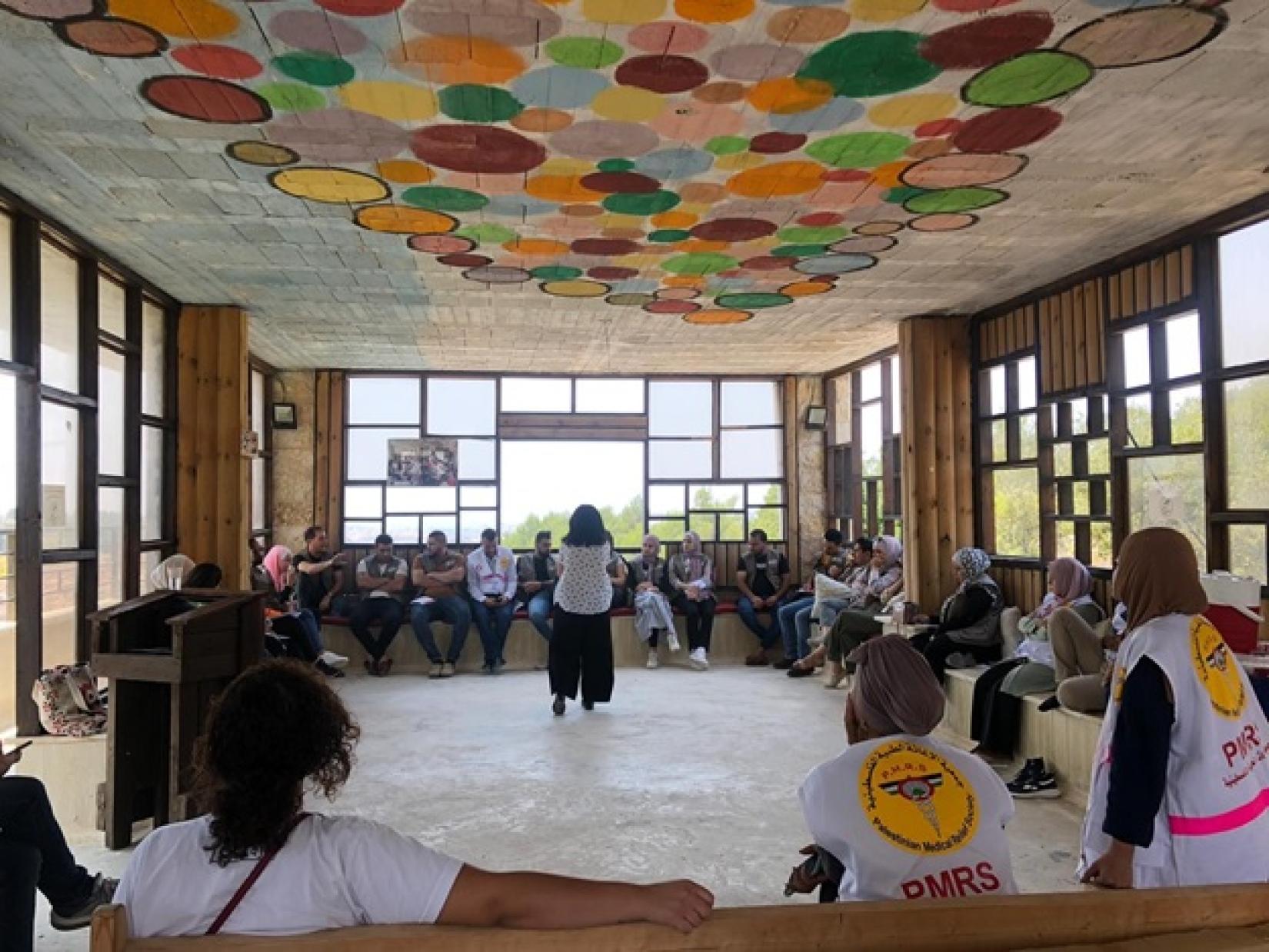International Youth Day 2021 Joint Activites in Palestine
31 August 2021
On 12 August, the world celebrates International Youth Day. This year’s theme was Transforming Food Systems: Youth Innovation for Human and Planetary Health. Like every year, UN agencies in Palestine celebrate this day through a programme that sees youth at the centre.
The theme was proposed by young people during the 2021 ECOSOC Youth Forum; the issues and priorities highlighted by youth participants included their views on the impact of the COVID-19 pandemic particularly related to its effect on human health, the environment, and food systems.
Young people want to be able to make informed decisions on the food they consume and this can only be possible through increasing global education on the healthiest and most sustainable options for both individuals and the environment. Youth wants to be included in the development strategies to restore the planet and protect life, while integrating biodiversity in the transformation of food systems.
This is why the UN agencies in Palestine have come together in a concerted effort to not only celebrate young people’s innovative contributions to transforming the food system, but also to give space to more and more voices for change.
In her statement, the UN Resident Coordinator for the occupied Palestinian territories, Lynn Hastings emphasised that “the UN Agencies in Palestine support young people as innovators and leaders to develop systems of food production, enhance sustainable agriculture and cultivate innovative solutions. Particularly in the context of occupation, the land and its resources are essential for young Palestinians navigating their way to a secure and independent future”.
As a result, the UN Thematic Group on young people kicked off a month of action that focus on food production and consumption highlighting its impact on the health of the people and the planet in the oPt.

As part of the campaign, UNESCO Ramallah Office organized an event in the village of Battir, a UNESCO world heritage site, aiming at engaging youth in learning about traditional agriculture and promoting sustainable food culture in Palestine. A video was also produced to raise awareness with the wider community on the importance of traditional agricultural techniques in preserving the Palestinian cultural heritage whilst also producing food in ways that respect the environment.
In Gaza, UNFPA organized a number of expert walks to share the environmental challenges of the region with young people. UNFPA’s partner Save Youth Future Society held a coexistence environmental day opening a dialogue between the young participants, farmers and the environmental specialists. The dialogue focused on the importance of agricultural land and natural reserves in the country, climate change and its impact on biological and agricultural diversity. Furthermore, an ecological tour in Juhr Al-deek area gave the opportunity to Gaza’s youth to learn about its agricultural and environmental facilities, and the process of producing organic fertilizers from food and agricultural waste. Youth participants together with farmers planted fruit trees and placed signs to protect the environment and biodiversity in the area. Read the thoughts experiences of Salma and Haneen!
UNICEF and UNDP held a brain storming session with Palestinian youth in an attempt to find a solution for the challenges faced by Dura Cooperative Association for Agricultural Production. Improved marketing and packaging, as well as business development and expansion strategies were some of the suggestions they came up with. When youth’s creativity and diverse skill-sets come together great solutions can come to fruition.
Finally, FAO, WFP, UNFPA, UN Women, UNESCO Ramallah Office, UNDP, Ministry of Higher Education and the Ministry of Entrepreneurship and Empowerment jointly organized a virtual youth dialogue to give young people an opportunity to pitch their innovations for food systems. From seedless grape culture and wicking bed system technology to pipes system for irrigation, from using renewable energy sources to face the typical resource shortages resulting from the occupation to hanging agriculture, Palestinian youth are working incredibly hard to make the food systems all over Palestinian land more sustainable. Despite the fragmentation due to restriction of movement, youth are united in their wishes for Palestine, a green future for what they call “paradise land”.
A functioning and sustainable food system in Palestine can be a way to “farm peace” and unite young people scattered across the Gaza Strip, the West Bank and East Jerusalem.








